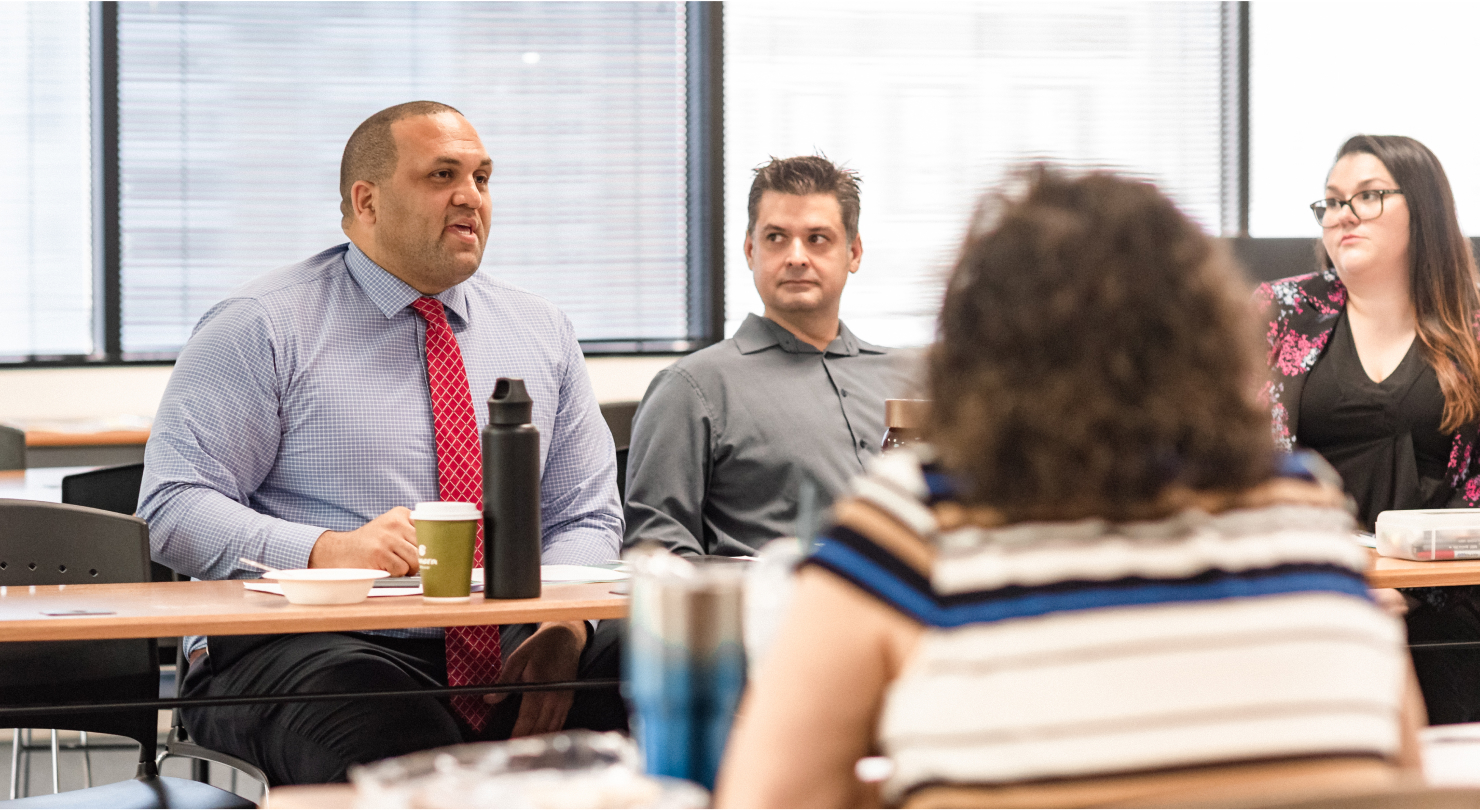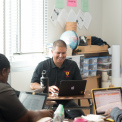
School
Leadership
inside our Practice
We know that to create environments where teachers are fully supported in achieving positive student outcomes, school leaders must possess the leadership and management skills needed to interchangeably address instruction, school operations, and the administrative functions of school sites on a daily basis.
At the same time, large urban districts continue to face barriers to preparing leaders to effectively run schools due to limited resources allocated to principal support and a lack of coherence in the professional development offered to leaders and teachers.

What Sets the Partnership Approach Apart
We have critical autonomy to recruit and select principals, support and coach them, and hold them accountable for their school’s performance. To build the capacity of great leaders to serve in our network of schools, we seek to identify strong leaders, give them authority over critical school-based decisions, provide the professional development and intensive coaching and support they need to establish a shared school vision and make effective decisions, and hold them accountable for changes in schools that drive dramatic improvements in student outcomes.
We intentionally pair our leadership development programming with intensive school-site supports that include coaching and progress monitoring, strategic leadership support, and supervision and evaluation. These supports are designed to help leaders actualize the school’s vision and build effective, sustainable systems for implementation that leverage learning from professional development sessions. We believe that systems amplify the efforts of a strong leader to create sustainable change over time, and in turn, skillful leadership in schools can have a multiplying effect on the impact of teachers and the broader school community.
We provide on-site, individualized coaching and support for school leaders. Our Academic team’s four senior directors lead instructional and organizational leadership supports on-site, and bring with them rich experience as former principals with track records of academic growth and success in transforming schools. They provide on-site coaching and support for our principals, assistant principals, and Instructional Leadership Teams (ILTs) and supervise and evaluate principals at significantly smaller ratios than is traditionally offered in most large, urban districts. Our principal-to-senior director ratio is an average of 5:1, and is an example of the level of support possible when equity is at the center of a system’s investments.
We differentiate site-based supports for schools based on need. Our model of professional development and aligned supports at the school site is possible for districts if they use an equity-based approach. Comparable ratios could be achieved for schools that have been persistently low performing, schools facing extraordinary hardship, and schools serving the most high-need communities. It is in these contexts that differentiated supports are needed in order to effectively support school transformation.

“Because the Partnership senior directors have smaller caseloads, they are able to individualize and differentiate supports. With the Partnership, we receive academic support tailored to our school needs.”Susana Ansley-GutierrezPrincipal, Santee Education Complex
What We Do

Coaching & Progress Monitoring
To complement formal professional development sessions, school leaders receive individualized coaching from Partnership senior directors who have proven experience as transformative principals in high-need schools.

Leadership Support
Principals regularly struggle to protect time to engage in instructional leadership responsibilities while juggling the myriad operational and organizational issues that arise on a daily basis. Partnership senior directors support principals by facilitating guidance and supporting the development of systems that make these issues easier to manage.

Supervision & Evaluation
Our approach to supervision and evaluation is holistic and school-centered, rather than traditional approaches that can feel punitive and absent of the types of supports that encourage development and improvement.

